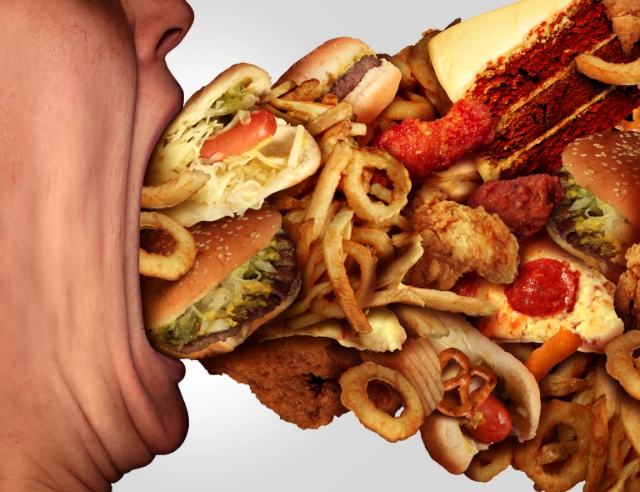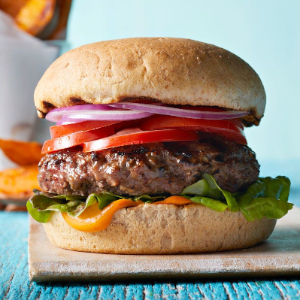At first thought, you might figure it would be easy to define what a ‘junk’ food is. But scientists from New York University took a good, long look at the issue and realized it was much harder that they thought to draw a clear line between ‘good’ and ‘bad’…
 How junky does junk food have to be to be rationally defined as such?
How junky does junk food have to be to be rationally defined as such?
How healthy does a so-called junk food have to be before it
can escape being condemned by the label ‘junk’?
I was quite content to define junk food as highly- or ultra-processed foods containing excess salt, sugar and/or fat as ‘junk food’. Then I read the results of a recent study by researchers at New York University (NYU) who claimed many additional variables had to be worked into the equation to get a valid answer to the question.
Why is a more complex definition needed?
“There is a growing recognition that an unhealthy diet stems from over-consumption of what we colloquially refer to as ‘junk food’,” says Jennifer Pomeranz, assistant professor of public health policy and management at NYU School of Global Public Health, and the first author of the study, published in the journal Milbank Quarterly. “However, public health efforts to address junk food are hindered by a lack of a uniform method to define junk food for policy purposes.”
It comes down to the need for a valid legal definition of ‘junk food’ when the lawyers and politicians are trying to write legislation to enable far and equitable controls or taxation of the stuff. How much excess sat, sugar or fat is too much? Would the ‘too much’ amount or percentage vary with different kinds of food? Should the line be drawn based on how often the average person consumes a food product, or what volume they consume over a given period of time? It goes on and on.
Everything in moderation
The original maxim can be traced to ancient Greece, where it was often quoted as: ‘Pan metron ariston‘ (παν μέτρον άριστον), as coined by Kleovoulos o Lindios in the 6th century B.C. Some believe that the original quote was ‘Metron Ariston‘ which means ‘moderation is best’. There are no less than 25 citations of the saying in various places in the Bible.
But the modern source most folks quote is celebrated Victorian British wit Oscar Wilde, who added a popular corollary: “Everything in moderation, including moderation.”
And those of us in the food and food service sphere, will always associate the saying with the late, great Julia Child, who always emphasized the second part – ‘including moderation’.
If controlling junk food and the ills it casts on society was as easily as getting folks to follow the admonition to practice moderation, we wouldn’t need a complex, legalistic definition. But, when humans are involved, things are never that simple.
Other considerations
Many others, in fact. Studying the experience of jurisdictions small and large in trying to implement junk food controls, the researchers were struck by the tremendous variety of different definitions of ‘junk food’ that towns, cities, states and even countries had been working with.
After thoughtful studies of no fewer than 47 different definitions, the team found that more than half of the laws studied used multiple criteria to define ‘junk’ and there were many variations on the selection and relative emphasis placed on those criteria.
For example…
According to an abstract of the report on NYU study, two general considerations came to the surface in a majority of definitions:
“Two themes emerged: first, policies used categories of food products to help differentiate between necessary or staple foods and non-staple foods. For instance, bread was often excluded from junk or snack food policies, as it is widely considered a staple food, while sweets and chips were considered non-staple foods.
“Second, policies commonly added a combination of processing and/or nutrient criteria to further determine which products within food categories would be subject to or exempt from regulation, generally favoring products with lower levels of processing and additives.”
Here’s where it gets interesting – read ‘hazy’, ‘contentious’ and ‘debatable’.
Definition process is ‘evolutionary
Because new products and processes are always coming onto the market, defining ‘junk food’ for purposes of consumer and ‘official’ use may be considered perpetually evolving. Dr. Sean Cash of the Friedman School at Tufts has the final world (for now):
“An advantage of excise taxes is that food companies may be motivated to reformulate their products to be healthier to avoid taxation. […] Defining foods to be taxed is not a static exercise, as existing products are reformulated and thousands of new packaged foods are introduced each year – so how we tax foods is not just a tool for steering consumers away from the least healthy options, but also for encouraging healthy innovations in what ends up on the supermarket shelves.”
My take
First… How do you manage a job like constantly revising an official definition with so many floating variables?
Second: I don’t think it really takes a complex definition of ‘junk food’ to keep the average person on the straight and narrow, if they want to keep track of what they’re eating and act accordingly. Hamburgers are supposed to be junk food. But would you consider the burger in the photo at the top of this page ‘junky’? Not me. But how would it fit into some hypothetical legal definition of ‘junk food’?
Third: The system of excise taxes described by the NYU study abstract sounds to me like an exercise in two-cushion pool shots. How many of those do the average collection of lawmakers actually sink? I fear the official definition of ‘junk food’ must be much simpler and clear-cut than the NYU folks propose if taxation authorities and manufacturers don’t want to be constantly embroiled in costly court battles foe years and years down the line.
Anyway, we’ll keep an eye on this issue as both the questions and the answers keep evolving…
~ Maggie J.

